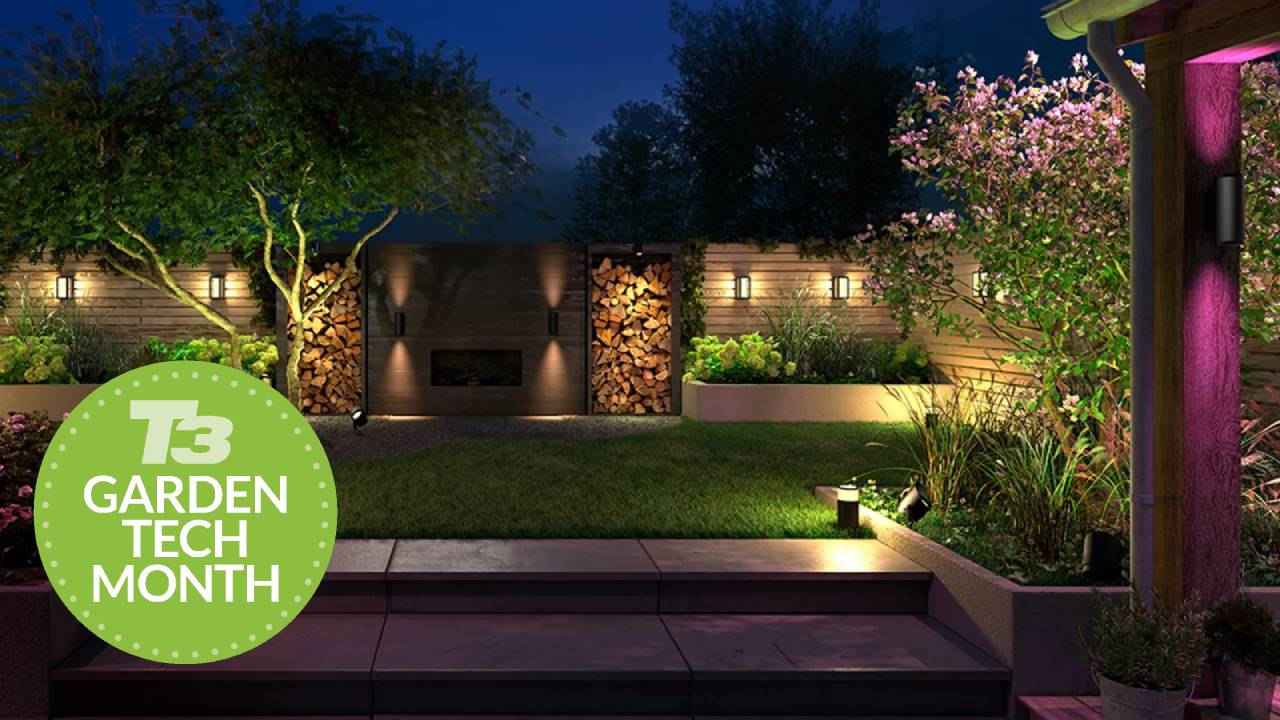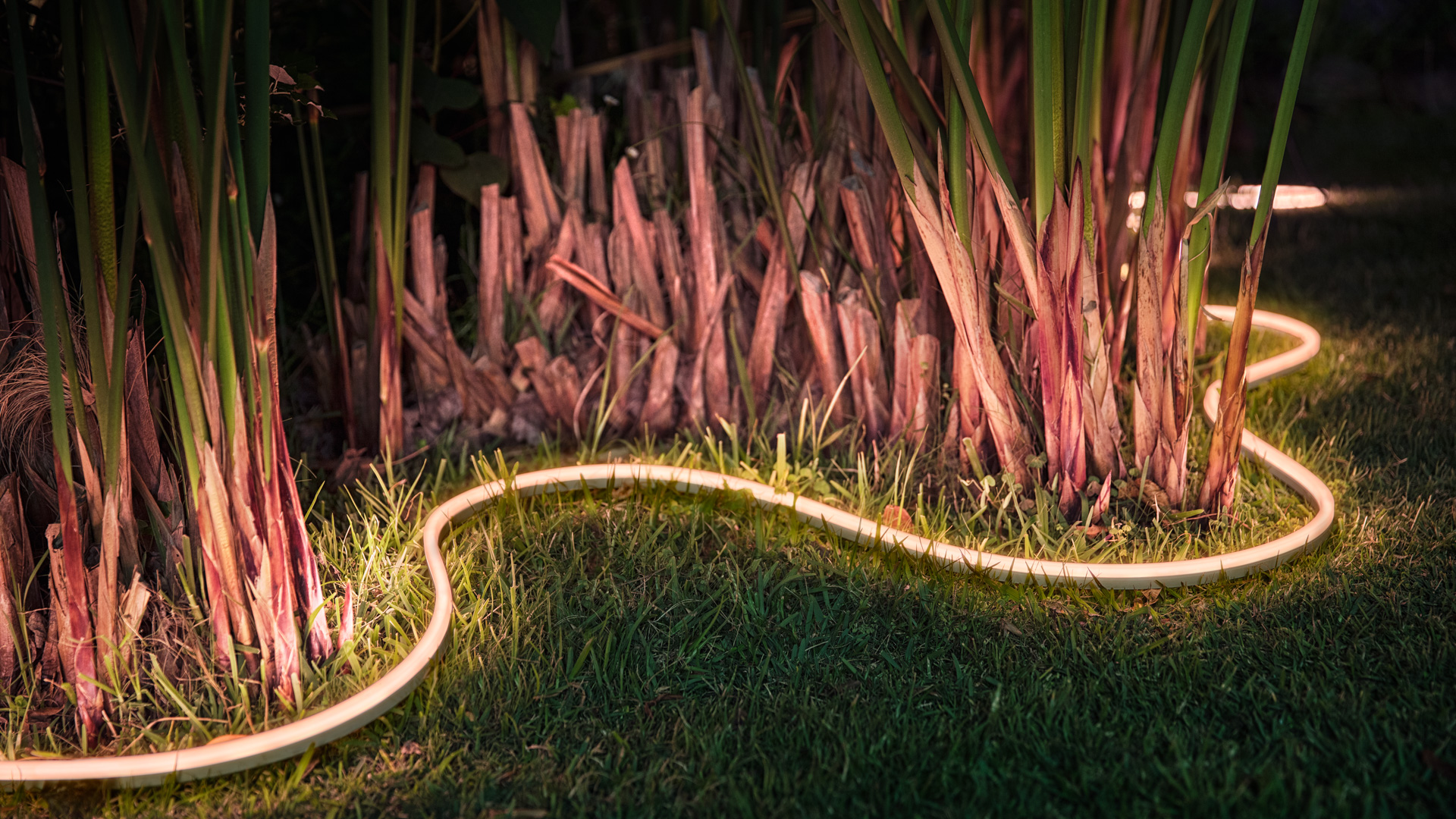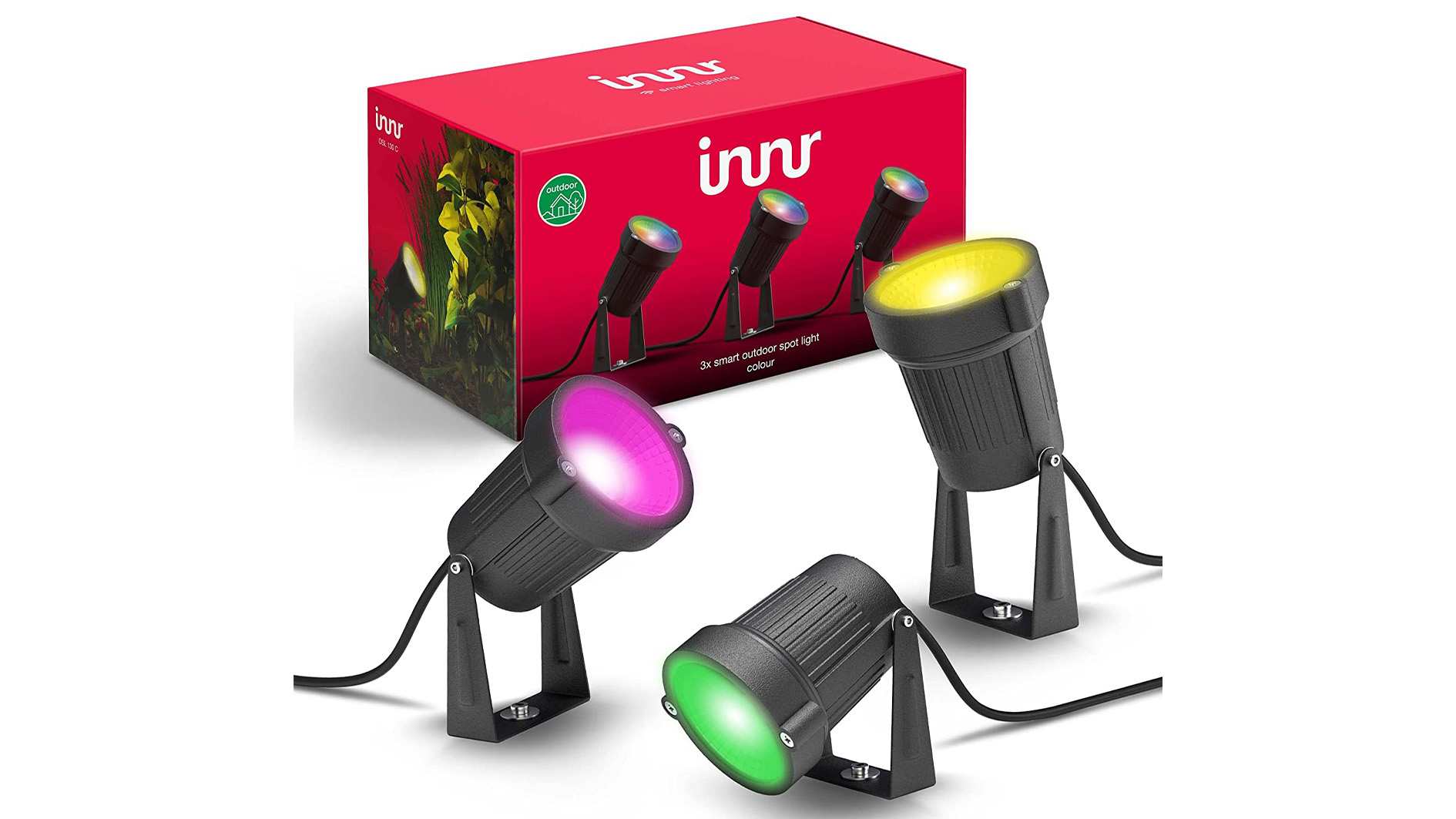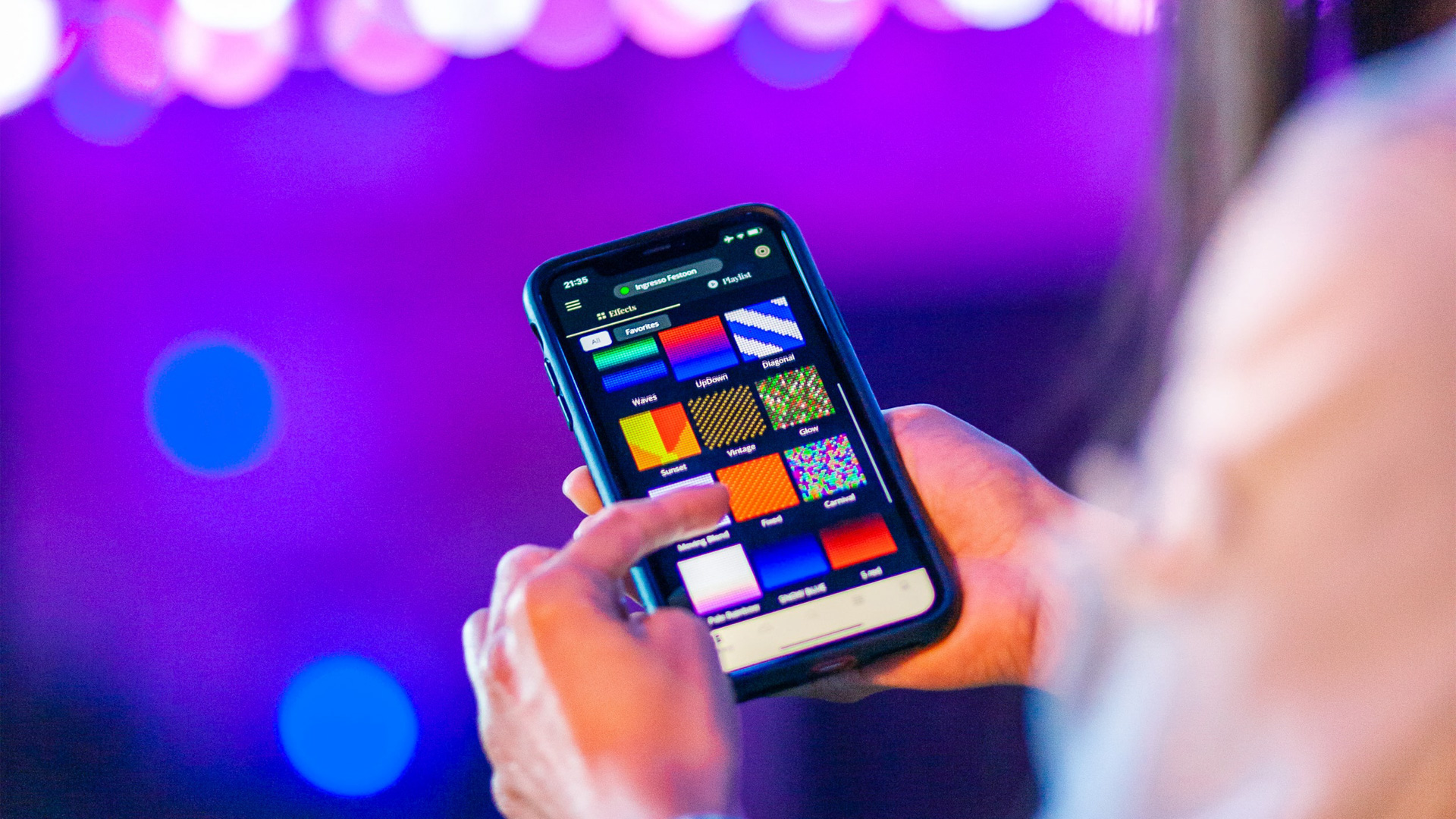How to introduce smart lighting to your garden
Illuminate your flowerbeds and cast pools of light onto the patio with these connected, voice-controlled lights


With the sun shining and temperature soaring, it looks like June was the perfect pick for T3’s Garden Tech Month. We’ve already looked at essential garden gadgets, smart soil monitors and connected weather stations, and now it’s time to turn our attention to outdoor lighting.
Naturally, this being T3, we’re looking specifically at smart outdoor lighting. Smart lighting has been available inside the home for years now, letting you pick from thousands of colours and adjust the brightness and temperature of every bulb and light strip with a smartphone app, voice control or even automation.
But what about the garden? Although the market for weatherproof outdoor lighting is smaller for now, there are still plenty of great ways to illuminate the outside of your home. From wall-mounted spotlights and down-lights, to lights that can be planted into the soil, there are plenty of options for illuminating every aspect of your garden, path, patio or driveway.
Philips Hue by Signify is the market leader, just as it was when indoor smart lighting was relatively new. But other options are arriving all the time, and often with lower prices too. In this guide, we’ll cover which products to buy, what to consider before starting, and how to get the most out of your garden smart lighting system.

Before you get started
Like any garden project, installing smart lighting requires some preparation. Almost all garden lighting systems (and especially phone app-connected smart ones) need access to power and Wi-Fi.
This will likely mean the installation of outdoor power sockets, if you don’t already have some, or a weatherproof way of running power cables from sockets in your home or an outbuilding like a garden shed or summer house. You’ll need a plan for concealing power cables, whether that be simply burying them in the soil, or taking a completely bespoke approach with walls and decking designed from the outset to house powered lighting.
Next, the lights are going to need a data connection. Some connect directly to your Wi-Fi network, while others connect wirelessly to their own hub first, which is then connected to your router with an Ethernet cable. For the former, you’ll need to make sure every garden light is close enough to the router to function properly. This might mean relocating the router closer to the garden, or investing in a Wi-Fi network extender for boosting signal strength outdoors.
Get all the latest news, reviews, deals and buying guides on gorgeous tech, home and active products from the T3 experts
Lastly, think about how your garden lighting system might be expanded at a later date. Have you enough plug sockets available to do that? Can your decking be modified to house more lighting, or different models of light at a later date? These aren’t the sort of device that gets updates annually, but factoring in some flexibility to your build, and room for future expansion or modification, is a good idea.
Although solar-powered garden lighting is available – and some options appear in our roundup of the best outdoor lighting for 2023 – these are not smart and cannot be controlled with a phone app.

Installation and automation
Now for the installation itself. By this stage, you should have decided which lighting you want, and where each light is to be installed. If not, think about whether you want wall-mounted lights projecting up and down, LED light strips snaking their way through the borders, spotlights high on the walls, or bulbs planted into the soil. Each of these light types has its own demands when it comes to installation.
At this stage, you should consider what smart home tech you already have, if any, and which automation system you want your garden lights to work with. Do you already use Alexa to control lights in the home? Or perhaps you have everything running through Apple’s Home app on an iPad.
Most smart lighting systems work with both Amazon Alexa and Google Assistant, so it should be relatively straight-forward to integrate new lighting into your existing voice-controlled smart home systems. Fewer lights work with Apple’s HomeKit, however, so it's worth doing your homework first if you want Siri-controlled garden illumination.
It's also worth thinking about automation. Optional motion sensors can have garden lighting switch on automatically, both as a convenience feature but also as a form of security and burglar deterrent.
It’s possible to create routines whereby, for example, the garden lighting comes on after sunset for a set number of hours, or lighting installed by the driveway and front door come on when you are nearby, as determined by the location of your smartphone. Home automation tools like IFTTT (If This, Then That) can help with this type of functionality.

Which smart lighting to buy
As we have already alluded to, Philips Hue is a fantastic choice for garden and outdoor lighting. The company offers a broad range of weatherproof lighting options for mounting almost anywhere, from walls and decking to among the flowerbeds. Hue lighting isn’t cheap though, with most options costing between £100 and £180 per light.
An alternative option is Govee, which offered a smaller selection of smart outdoor lighting but at a lower price. While its outdoor collection lacks the sophisticated pillars, bollards and wall-mounted options offered by Hue, its products are well-priced, with a 10-metre light strip costing £80 and smart flood lights coming in at £70. Govee also offers sets of multi-coloured ground lighting with spikes for fixing into the soil, and a couple of models of string lights which work for ambient lighting, but could also be configured for a fun Christmas or Halloween display.
Lastly, for smart fairy lights, there's Twinkly. This company offers a range of smart, multi-coloured bulbs daisy-chained together and controllable with Alexa and Google Assistant. They can also be synchronised with music and have an IP44 rating for weather resistance. A string of 20 bulbs costs £130, or 40 bulbs is £230.
Above all else, make sure the lighting you buy is designed to be used outside. IP certification helps make this easy, and lighting with a certification of IP44 is splash proof, with the first number referring to dust resistance and the second referring to water resistance. Lights with a certification of IP65 are protected against all dust (or soil) and water jets, so will be safe to use almost anywhere in the garden.
Alistair is a freelance automotive and technology journalist. He has bylines on esteemed sites such as the BBC, Forbes, TechRadar, and of best of all, T3, where he covers topics ranging from classic cars and men's lifestyle, to smart home technology, phones, electric cars, autonomy, Swiss watches, and much more besides. He is an experienced journalist, writing news, features, interviews and product reviews. If that didn't make him busy enough, he is also the co-host of the AutoChat podcast.
